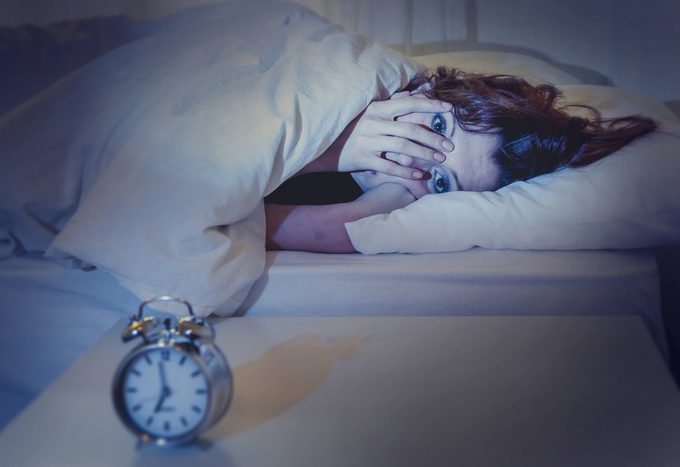Diary of an Insomniac
I am a woman on a mission: to get more sleep.

Living Life With Insomnia
My husband was the last thing I kicked out of the bedroom. Prior to that, it was the laptop and, before that, the dog.
I am a woman on a mission: to get more sleep. Most nights, the task feels as unobtainable as living on Mars, but I’m determined to find my way back to that teenage version of myself who slept, without aid or ache, for up to 12 hours at a time.
Wait, who are we kidding? Twelve hours? Really, I’d settle for a solid six.
I know some women who wear their sleeplessness like a 21st- century badge of honour. I’m not one of them. I’m actually embarrassed that I can’t do what feels like a very basic thing: zonk out at the end of a long day and sleep, perchance to dream.
I’ve followed the tips for good sleep hygiene, which explains getting rid of the laptop, the dog and the snoring husband. Unfortunately, none of these measures has made me a better sleeper. I’ve since welcomed my husband back to my marital bed – no sense punishing him for my nocturnal nonsense.
So, what’s the fix? If I’m the poster girl for good sleep hygiene, then why can’t I put an end to my toss-and-turn turmoil?
Feeling foggy and fatigued, I call Toronto naturopath Dr. Penny Kendall-Reed for guidance.
“Beth, you’re stressed!” she says. “A full 99 percent of poor sleep is caused by inhibited stage 4 delta wave sleep due to stress.”
“But I don’t feel stressed,” I quip.
“It could be stress that was turned on years ago, and the production of those hormones never shifted back to the off position,” she explains. “What happens is that the body begins to adapt mentally, so you feel like you aren’t stressed. But when we test the hormones, they are elevated and usually the causal factor.”
Turns out, my vivid dreams and consistent waking cycle (around 4 a.m.) is a dead giveaway that I am stressed and have amped-up cortisol. A less-anxious person’s natural cortisol peaks between 6 and 8 a.m. – she is the sympathetic friend who nudges you to wake up naturally. At 4 a.m., she is the lampshade-wearing guest you just wish would leave the party.
Dr. Kendall-Reed suggests a one-two punch: melatonin to help promote the all-important stage 4 sleep and a cortisol inhibitor (such as Sereniten Plus) to reduce stress hormone production.
Within a few weeks, I notice a change. I’m having fewer crazy dreams, which is helping me sleep more solidly. I’m a long way from my teenage sleep schedule of 12 hours on and 12 hours off, but I’m getting some decent shut-eye for the first time in years, and that’s a bedtime story I’m happy to share.




